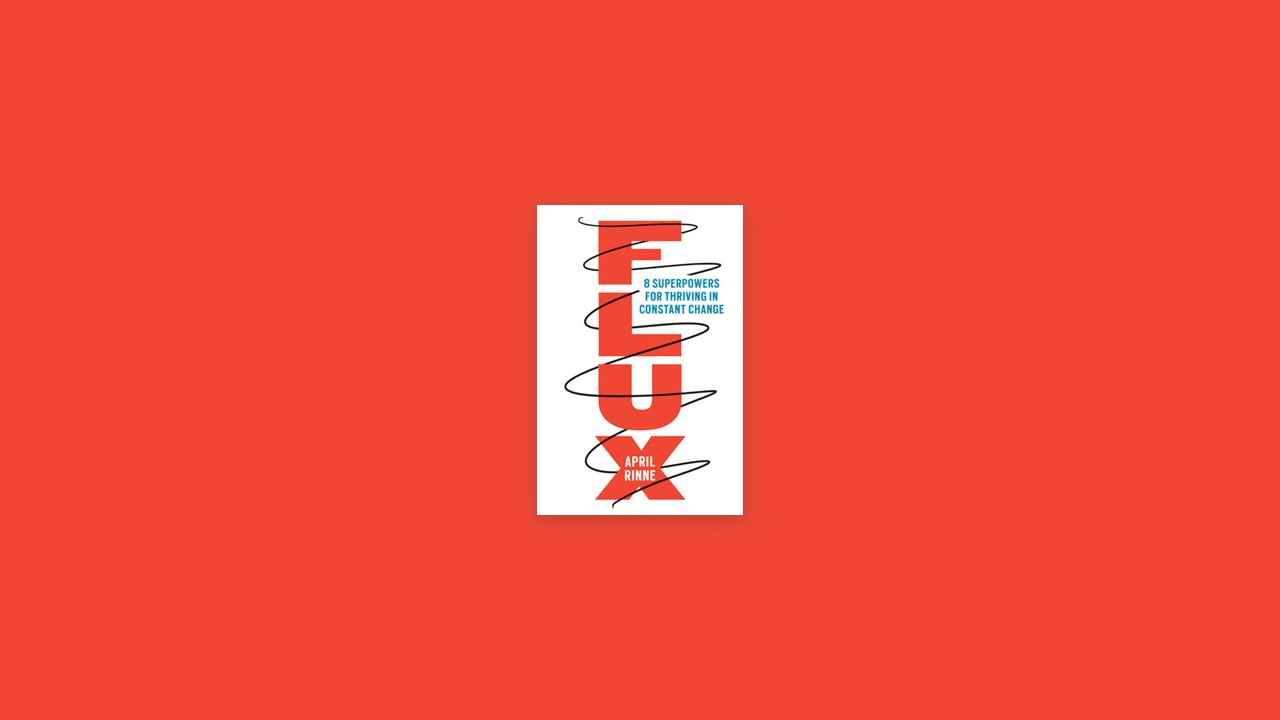#1 Run Slower
To thrive in a fast-paced world, slow your own pace.
In an upside-down world that coaxes, cajoles, and coerces you to run ever faster, your key to true success and growth is to do the opposite: learn how to run slower.
The old script says we must run faster to keep up. But a world in flux has different race conditions because the finish line keeps shifting. Whether it’s business demands, home and family priorities, responsibilities to juggle, relationships to nurture, or relentless uncertainty to decipher: the faster we run, and the more we run without resting or reflecting or even paying attention, the worse our results will be over time.
Yet for most people, running faster remains our default. We’re stuck in the old script, and it does not bode well. Especially if we’re running faster alone.
When we learn to run slower, the outcomes are better across the board: wiser decisions, less stress, greater resilience, improved health, a stronger connection with our emotions and intuition, presence, focus, and clarity of purpose. Paradoxically, slowing down actually gives us more time, which leads to less anxiety. Slowing down enhances our productivity in ways that matter and sends burnout to the dustbin. In reality, there are many kinds of growth that can come only with rest.
#2 See What’s Invisible
When life feels blurry or the future is uncertain, shift your focus from what’s visible to what’s invisible.
As children, we are often taught to look straight ahead and focus: on a goal, a destination, or a specific achievement. Learn how to read, excel at sports and extracurriculars, and graduate at the top of your class. These milestones are largely determined by the cultures, norms, and expectations of the society you’re raised in. They serve as orientation towards the future.
Don’t get me wrong: social norms serve an important purpose. Norms help ensure that individuals grow up with values, skills, relationships, and the capacity to contribute to society. Norms help keep order and stability. Yet by and large, any set of social norms represents only one way of seeing and being in the world: one slice of an infinitely broader human spectrum.
But when the world flips upside down, this narrow focus can wreak havoc. It can rip your roots from the ground. Indeed, the greater the change or the narrower one’s focus, the more disruptive the upheaval—and the fewer options one has to regain balance.
Each of us is inspired by what we see. But in a world of constant change, that principle only gets us so far. How do we move beyond what we can see and find inspiration in what we can’t? How do we learn to see differently and make the invisible, visible? This is all directly tied to writing your new script.
#3 Get Lost
In the landscape of change, getting lost is how you find your way.
Humans’ relationship with getting lost is complicated. Although many people would agree that getting lost is half the fun of life, the old script sees it as failure. Getting lost is a liability that’s perceived to involve loss of some kind: I’ve done something wrong, I’ve fumbled, and life will somehow be less as a result.
But in an upside-down world in which new changes hit every day—when familiarity is itself in flux—getting lost is part of a new script. In this world we are uprooted, disoriented, and unmoored constantly. Whatever compass you’re using has gone kaput. What’s more, this new landscape of change isn’t something you, or I, or anyone gets to choose. Flux just is.
Once you’ve opened a Flux Mindset, getting lost becomes a virtue: a secret weapon and stroke of genius not only to embrace being lost but to actively seek out the unfamiliar and stretch beyond your comfort zone as well. Getting lost doesn’t mean lacking direction or being foolish—that’s just the old script at work again. Rather, it means being completely comfortable with what you don’t (and may never) know.
#4 Start with Trust
When trust seems broken, assume good intent.
Growing up, most children are taught: do not speak to strangers.
Growing up, most children are told: when the school bell rings, even if you’re completely absorbed in what you’re doing and learning, you must switch gears.
When it comes to trust, the old script is like death by a thousand cuts. Day in and day out, we are reminded: people are not trustworthy. We cannot and should not trust one another. All else being equal, you cannot and should not trust me, and I cannot and should not trust you.
But hang on: What are we really achieving here?
We’re snipping the human connections and community that used to be the fabric of trust. We’re normalizing mistrust, disconnecting from each other and even from ourselves. We’re parching ground that was fertile, making it impossible for life—and trust—to take root and thrive.
And that’s not all. We’re also destroying curiosity, exacerbating inequality, and expending a ridiculous amount of time, money, and energy to keep these systems in place. (More on this in a bit.)
But remember: this is the old script, and in a world in flux, it’s crumbling before our eyes.
#5 Know Your “Enough”
In a world relentlessly striving for more, know your “enough.”
A mindset of “more” measures by numbers and relative power: “You are what you measure.” “If you can’t measure it, it doesn’t exist.” You earn more than Jack, you’re less successful than Olivia, your house is bigger than Frank’s, your IQ is lower than Julia’s, and so on. Yet what does this really say about you—and the values behind these metrics?
This “cycle of more” and the script that powers it can be quick to take root and surprisingly difficult to let go. The truth is: no amount of physical stuff can ever replace your inner sense of worth, but it can easily bankrupt you (and harm the environment in the process). Yet the old script persuades you of the exact opposite. This is how today’s consumerism is designed: the goal of “more” can never be fully satisfied, which keeps you tethered to the hamster wheel, clicking on ads and buying things that never fully satisfy.
But hold on. This is a script. And it’s not a script that many people would opt into, if they actually paused and thought about it. Who wants to live for an unattainable goal set by others, that’s exhausting and expensive, and often brings more jealousy than joy?
The new script sees through the mirage of more and says, enough is enough.
#6 Create Your Portfolio Career
For success and satisfaction in a world in flux, treat your career as a portfolio to curate rather than a path to pursue.
The new professional script is not about pursuing a singular path. A Flux Mindset knows that the career of the future looks more like a portfolio: a diversified professional identity, with resilient roots and customized to you.
Practically speaking, a portfolio career typically leads to:
- Diversification of income sources, which actually can provide more security than a traditional job.
- Ownership of your career. Unlike a job that someone else gives you, a portfolio can’t simply be taken away.
- An expanded professional community.
- Over time, more meaning and flexibility in what you do.
- A unique professional identity that evolves and thrives in a world in flux.
- Making yourself un-automatable (or automation-proof).
Creating a portfolio career does not mean lacking ambition or not having a “real job.” In reality, portfolio careers are quietly yet quickly becoming the most sought-after livelihoods of all.
Today, this goes far beyond individual preferences. When the old script of jobs, employment, and career paths is fraying before your very eyes, and the future of work itself is in flux, a portfolio career offers resilience and a proactive strategy to thrive in your career, rather than being tossed around by the winds of change.
#7 Be All the More Human (and Serve Other Humans)
In a world with more robots, your key to thrive is to be all the more human—and to use your humanity to help others.
In ways that are both glaringly clear and nearly invisible, technology has gradually crept into almost every aspect of our lives. Often, new technologies are helpful: they make things easier, faster, or cheaper to do. But alongside their efficiency is a more subtle and problematic message: that technology itself is the answer. It is humanity’s savior. An algorithm knows better than you do.
The ripple effects of this narrative are widespread: little by little, humans are cut off from their confidence (technology does it better), feelings (technology gladly numbs them), and agency (just keep clicking, that’s your only job!). Often without noticing, it becomes vexing to imagine “who I am” without my devices close at hand.
Today’s world in flux reveals the shortcomings of this way of thinking, in spades. As you open a Flux Mindset, you’re able to see beyond the trappings of the old script towards a reality in which you—and society as a whole—puts “human” back in humanity.
As you develop this Flux Superpower, your relationship to technology is reset. It’s not that you become a technology Luddite or tech-hater. That’s not the point at all. Rather, you harness the positive power of today’s new technologies with the inner wisdom that none of them are as powerful as the “technology” of awakened human consciousness.
#8 Let Go of the Future
Letting go of the future enables a better future to emerge.
From a young age, many people are led to believe that humans can predict and control the future. The messaging goes: Work hard and you’ll get a good job. Jump through the right hoops and the right doors will open. Make plans that will go as expected. These instructions aren’t bad, but each one assumes a predictable, controllable world … which couldn’t be further from reality today.
This old messaging is an illusion. Certainty is an illusion. The fact is, no one knows what tomorrow holds and no one can control the future. The old script describes how things are “supposed” to play out in a static, fixed, unchanging world. But that world is long gone and is not coming back.
Letting go of the illusion that you can control external circumstances releases you to focus on what you can control: how you respond. Letting go of everything you don’t need frees up time, space, and resources for what you do.
To be clear, letting go doesn’t mean giving up or somehow failing (though adherents to the old script struggle greatly to understand this). The ability to let go is in many ways the ultimate Flux Superpower. It may be counterintuitive, yet therein lies its potency.


